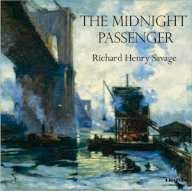 As a gifted writer with a strong interest in supernatural phenomena, Charles Dickens produced a string of ghost stories with enduring charm. Three of them are presented here, of which The Signal Man is one of the best known. Though quite different from his most celebrated realistic and humorous critical novels, these ghost stories, Gothic and grotesque as they are, are of good portrayal, and worth a read/listen.
As a gifted writer with a strong interest in supernatural phenomena, Charles Dickens produced a string of ghost stories with enduring charm. Three of them are presented here, of which The Signal Man is one of the best known. Though quite different from his most celebrated realistic and humorous critical novels, these ghost stories, Gothic and grotesque as they are, are of good portrayal, and worth a read/listen.Read by Marian Brown and Muhammad Mussnoon.
link to the free audiobook
Three Ghost Stories [by Charles Dickens]
![Rapid Ear Movement [Free Audiobooks]](http://4.bp.blogspot.com/-_FEXDK5EkVQ/VMpCoKqvgvI/AAAAAAAAAdY/fsm4URiw-rM/s1600/rapid%2Bear%2Bmovement.jpg)
































